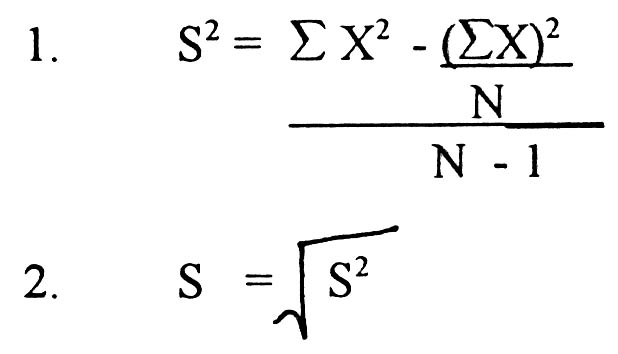
|
M.L. SULTAN TECHNIKON
JANUARY 2002 EXAMINATION
|
|||
|
INSTRUCTIONAL PROGRAMME INSTRUCTIONAL OFFERING DURATION MARKS EXAMINER MODERATOR |
B.TECH RESEARCH METHODOLOGY THREE HOURS 100 Dr R.P. Chetty Prof D.R. Bagwandeen |
||
|
=================================================== INSTRUCTIONS/REQUIREMENTS 1. Answer all questions 2. Calculators may be used. =================================================== DO NOT TURN THE PAGE BEFORE PERMISSION IS GIVEN |
|||
SECTION A
1. What sources should
be checked before you decide on a research topic?
(5)
2.
Discuss two criteria for a good hypothesis and illustrate each criterion by means of an example.
(6)
3. Distinguish
between a sample and a population.
(4)
4. Discuss the functions
of a research proposal.
(5)
5. Describe
each of the components of a research proposal.
(8)
6.
Explain briefly why a review of related literature has to be done before
one commences with a research project.
(5)
7.
Explain two methods of sampling and illustrate each method with an
example.
(8)
8.
Distinguish between the validity and reliability of a measuring
instrument.
(4)
9.
Explain how you would use the table of random numbers to draw a sample of
50 subjects from a population of 3091 subjects.
(5)
TOTAL: 50
SECTION B
The
following depicts the relationship between test scores (X) and examination
scores (Y) for a group of students.
|
STUDENT |
X |
Y |
|
|
|
|
|
A |
5 | 4 |
|
B |
9 | 9 |
|
C |
7 | 8 |
|
D |
5 | 6 |
|
E |
3 | 3 |
|
F |
1 | 2 |
|
G |
2 | 4 |
|
H |
6 | 8 |
|
I |
6 | 9 |
|
J |
4 | 5 |
Calculate
the following:
1. Median for the
X-scores.
(2)
2. Mean for the X-scores
(2)
3.
Mode for the Y-scores
(2)
4. Range
of the Y-scores
(2)
5.
Variance for the X-scores
(5)
6.
Standard deviation for the Y-scores
(7)
SECTION C
1. In our everyday lives
we rely on various ways of knowing more about our social reality. We need to
guard against incorrect knowledge. Identify five ways of knowing, which are
alternatives to science. Give an example for each to illustrate your answer.
(5)
2. What
steps would you recommend to a researcher to prevent interviewer bias?
(5)
3.
Briefly describe how you would choose whether to use an interview or a
questionnaire to collect data from your sample.
(5)
4. How would you ensure
the validity of your observation?
(5)
5. How would you ensure
the validity of your questionnaire?
(5)
6.
Give an example of a closed question and an open question that you would
use in your questionnaire to elicit information for your specific research
topic.
(5)
TOTAL: 30
FINAL
TOTAL: 100
